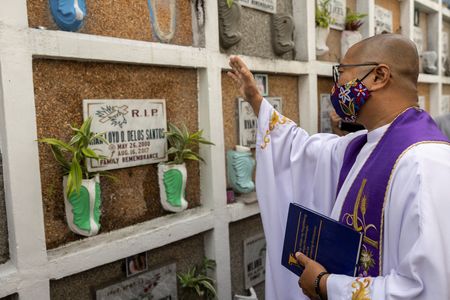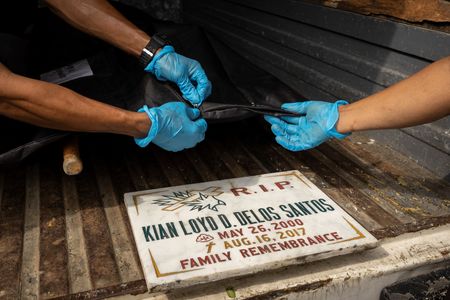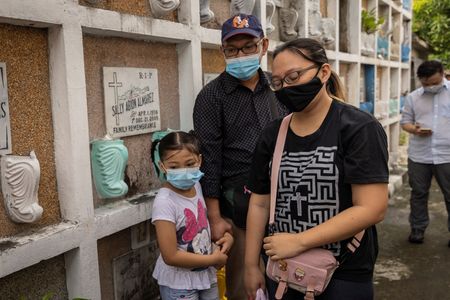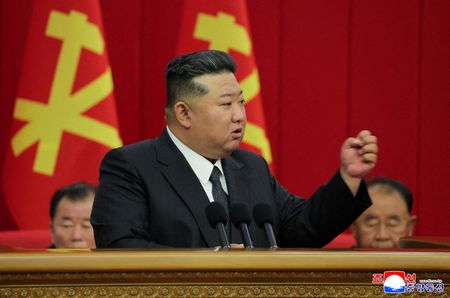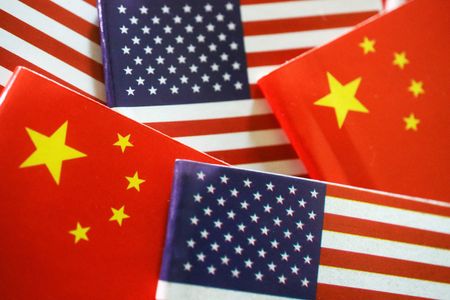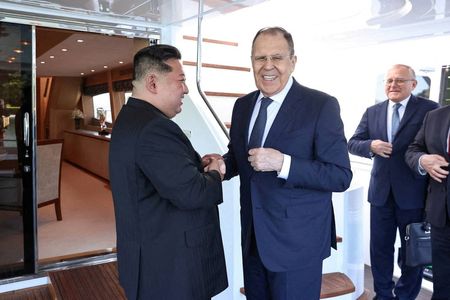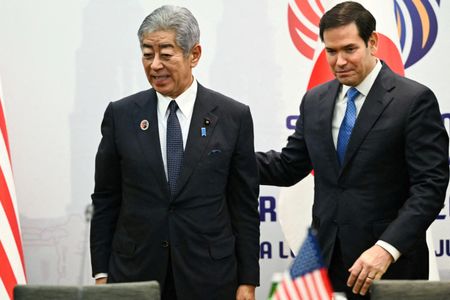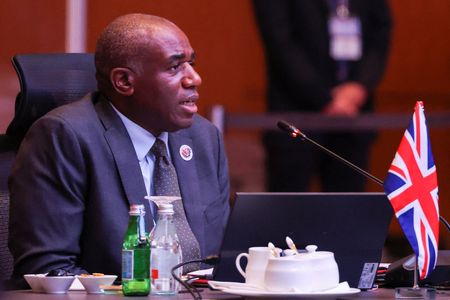By Eloisa Lopez
MANILA (Reuters) – The body of a teenager killed in a high-profile shooting during the Philippines’ war on drugs five years ago was exhumed for autopsy on Monday as his family seek to learn more about his death and hold others accountable.
High school student Kian Delos Santos was 17 when police shot him in an act they said was self-defence.
But video footage contradicted the official police report, sparking huge public outrage against the bloody anti-narcotics campaign of former President Rodrigo Duterte, and the rare conviction of police officers who rights groups say have otherwise enjoyed impunity.
(https://tmsnrt.rs/3dkqxr4)
Randy Delos Santos, the victim’s uncle, told reporters at the exhumation at a cemetery in Manila on Monday that the body would be autopsied by a forensic pathologist who was challenging the official narrative of how people such Delos Santos were killed during the drugs war.
“The bones still speak.
After five years, let us see if we can still discover more truth,” he said, adding that the family was pushing for more people to be punished for the death of his nephew, without naming them.
Philippine police did not respond to requests for comment.
Official records show police killed 6,252 people during the crackdown that followed Duterte’s election in 2016, all in self-defence. Rights groups say police executed drug suspects on a massive scale, which the police deny, and that thousands of mysterious street killings were not included in the tally.
The families of many drug war victims are still seeking justice in long, drawn-out cases.
“If the justice system was really working, there should more (convictions),” Randy Delos Santos said, adding there were many other cases that contradicted government claims the victims had fought back.
(https://reut.rs/3dwOcov)
Delos Santos’ case was featured in a report by a former International Criminal Court (ICC) prosecutor who opened a preliminary probe into the drugs war in 2018.
President Ferdinand Marcos Jr, Duterte’s successor, said he has no plans of rejoining the ICC after the country withdrew from the treaty in 2019.
(Reporting by Eloisa Lopez; Writing by Karen Lema and Neil Jerome Morales; Editing by John Geddie and Alex Richardson)

